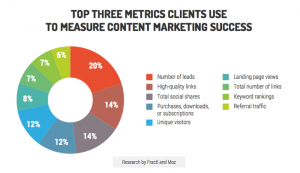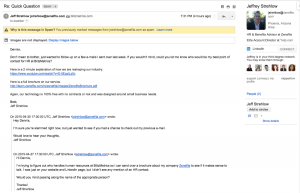Nearly Two-Thirds Of Clicks On Google Search Remain Within Its Ecosystem

Clicks have an impact on rankings in Google Search, making it more important for marketers to gain value from searches that do not result in a click.
Nearly 59% of Google searches in the U.S. and 59.7% in the European Union (EU) result in zero clicks, which occurs when users complete a query session or enter a new one without clicking on a result.
Rand Fishkin, SparkToro’s CEO and co-founder, published the data earlier this week in the post—2024 Zero-Click Search Study: For every 1,000 EU Google Searches, only 374 clicks go to the Open Web. In the U.S., it’s 360. He based it on clickstream data from Datos, a Semrush company.
“We’re almost certainly under-counting the ‘zero-click search’ problem, because this data does not account for use of voice-answered searches through Google Assistant, or searches done in the Google mobile search app (which, while similar to in-browser results, features even more rich answer results),” he wrote in the post.
Datos collected U.S. and EU panel data between September 2022 and May 2024.
Fishkin also voiced concerns that nearly 30% of all clicks go to Google-owned platforms such as YouTube, Images, Maps, Flights, Hotels and App Store.
“Most interesting to web publishers, entrepreneurs, creators, and (hopefully) regulators is the final number: for every 1,000 searches on Google in the United States, 360 clicks make it to a non-Google-owned, non-Google-ad-paying property,” and in the EU that number is 374, he wrote.
Nearly two-thirds of all searches in the U.S. remain stay inside the Google ecosystem after making a query.
The data shows that in the EU, Google sends less traffic to itself than in the U.S. Fishkin suggests the European Digital Markets Act could have an impact.
The difference, zero-click searches in Europe are slightly higher than in the United States, but clicks to the open web are also a bit higher.
Statistic estimated that in 2023 Google processed 5,9 million searches every minute, about 8.5 billion searches a day or 3.1 trillion searches per year.
Fishkin looked at whether AI Overview, Google’s AI platform, made big changes in search. Consensus showed that AI Overviews served less than 15% of search engine results pages (SERPs). He compared May 2024 to the four months prior to see how searches per searcher and clicks per search changed.
The U.S. and EU shared similar differences, and were most visible in May. Those changes included rising desktop searches, falling mobile searches, rising clicks on mobile searches, and desktop clicks per search were flat.
(5)
Report Post









